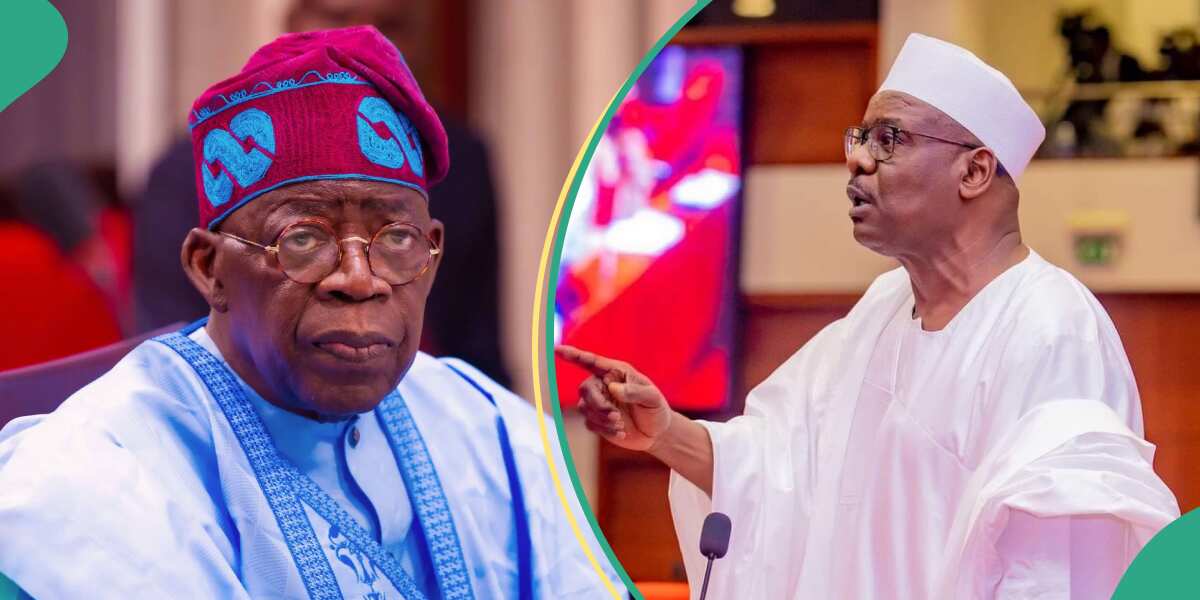A political storm is gathering within the ruling All Progressives Congress (APC) as Daniel Bwala, Special Adviser on Policy Communication to President Bola Ahmed Tinubu, has openly accused Senator Ali Ndume of Borno South of disloyalty to the party, claiming the seasoned lawmaker is now more aligned with the opposition than the ruling establishment he still officially belongs to.
Bwala made the explosive remarks on Sunday Politics, a prime-time political affairs programme on Channels Television, warning that Ndume’s recent conduct and rhetoric suggest he is no longer ideologically or emotionally tied to the APC.
“Let me tell you today, and I want everybody to hear, especially the APC chairman, Abdullahi Ganduje—Senator Ali Ndume’s spirit and soul are with the opposition; it is his body that is still in the APC,” Bwala declared. “He is already going. It’s better to do what Nasir el-Rufai did—leave with honour—rather than stay and play the snitch.”
The rebuke from the presidential aide follows a series of pointed criticisms by Senator Ndume against President Tinubu’s handling of key national issues.
Speaking just days before Bwala’s comments, Ndume urged the President to prioritize Nigeria’s growing insecurity and economic challenges instead of entertaining notions of a state of emergency in Rivers State—a proposal that has sparked national debate.
Ndume, known for his forthright style and deep roots in the National Assembly, also cautioned that any indication of disapproval from former President Muhammadu Buhari regarding Tinubu’s leadership should not be taken lightly, suggesting growing unease among Northern political heavyweights.
A powerful opposition coalition was unveiled on March 20, 2025, with major players including Atiku Abubakar (PDP), Peter Obi (Labour Party), and Nasir El-Rufai, now aligned with the Social Democratic Party (SDP).
READ ALSO: 2027 Elections: Tinubu Should Be Worried If Buhari Isn’t With Him — Ndume Warns
The coalition is widely seen as a strategic alliance to dethrone Tinubu in the 2027 general elections.
Collectively, these political figures amassed over 12 million votes in the 2023 presidential race—well above the 8.7 million votes that secured Tinubu’s presidency.
With the SDP increasingly emerging as the unifying platform for disgruntled PDP and LP members, speculation is mounting that Atiku and Obi may soon defect to join El-Rufai, who has already taken his political base into the SDP fold.
Bwala’s fierce comments highlight the mounting pressure within APC to address growing internal dissent as well as the broader disillusionment among its support base.
With economic hardship intensifying—fuelled by inflation, subsidy reforms, and a volatile currency exchange—public dissatisfaction is deepening, posing a direct threat to the ruling party’s cohesion and electoral future.
Party insiders worry that Ndume’s recent posturing may signal the start of further high-profile defections, especially from the Northern bloc, which remains a critical component of the APC’s electoral machinery.
As the 2027 elections loom, the APC’s challenges appear twofold: retaining its internal unity and countering a reinvigorated opposition coalition.
Senator Ndume, though still officially with the party, may become a bellwether for future political realignments, especially if his relationship with the Tinubu-led administration continues to deteriorate.
“We are seeing the early signs of a political realignment, and for the APC, it’s no longer just about staying in power—it’s about holding the party together,” a senior APC strategist noted anonymously.
The unfolding drama signals a turbulent period ahead in Nigerian politics, where party allegiance may prove fleeting and coalition-building will likely shape the road to 2027.

 Entertainment6 days ago
Entertainment6 days ago
 Health1 week ago
Health1 week ago
 Health4 days ago
Health4 days ago
 Football1 week ago
Football1 week ago
 Football1 week ago
Football1 week ago
 Crime5 days ago
Crime5 days ago
 Education6 days ago
Education6 days ago
 Health6 days ago
Health6 days ago

